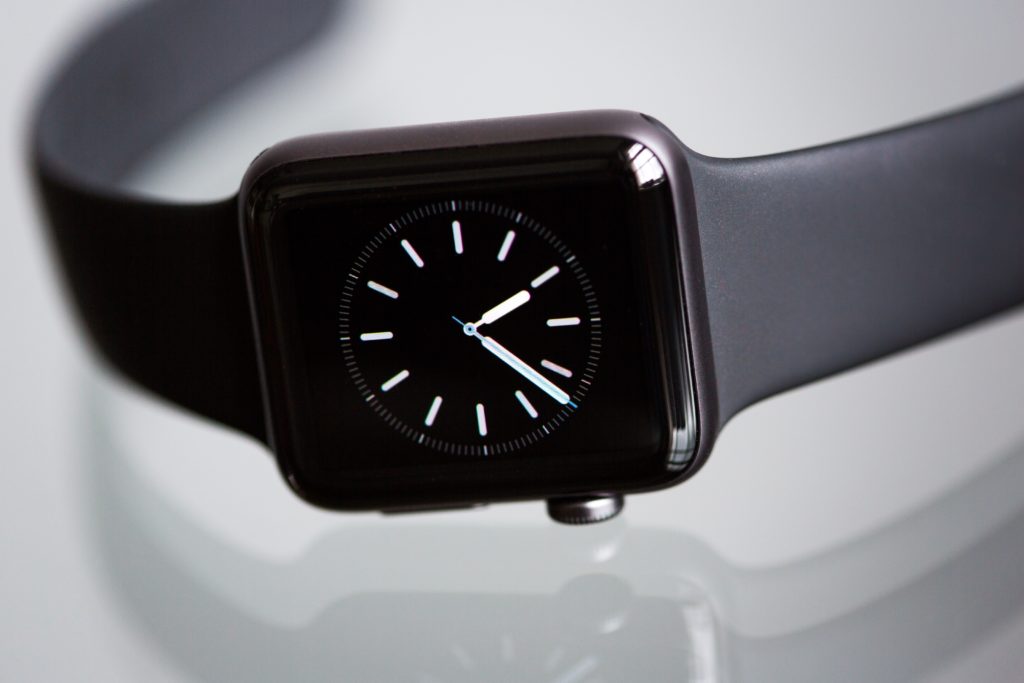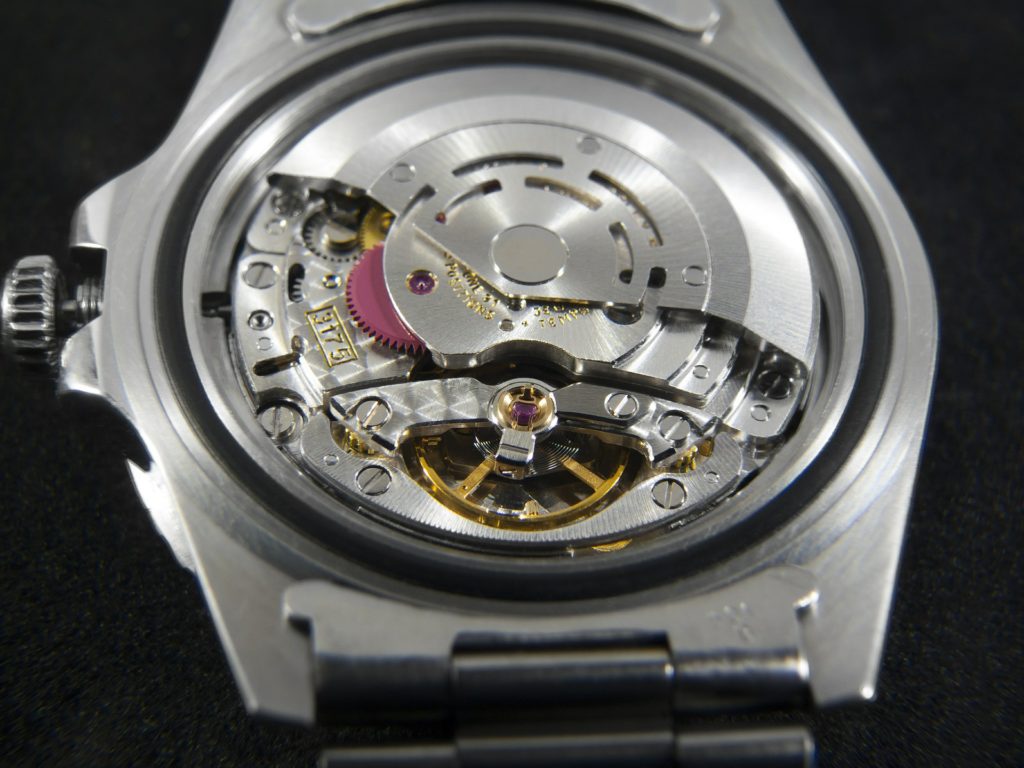Now you can listen to this article!
Most of us live fast-paced lives where keeping track of time is essential to honoring commitments, keeping a schedule, and organizing the day. Of course, this becomes significantly more difficult when your trusty watch constantly dies because of battery-related complications. As electronic watches have grown in popularity, this has become a more prominent issue everyday people face. Luckily, we’re here to help solve it.
There is a myriad of reasons why your watch battery keeps dying, and in this article, we’re going to detail the top eight likely culprits behind such a frustrating reoccurrence. While some reasons will only pertain to certain watches due to differences in design, we’ll make sure to explain why the issue is happening for each one and even state how you could potentially troubleshoot the cause or when your watch and its battery are beyond salvation.
The Battery’s Shelf Life Has Ended
Before we delve too deep into some of the reasons why your watch battery might be dying at an uncharacteristically fast rate, we’d like to cover the most common and likely cause first, an expired shelf life.
Arguably the leading cause behind a watch battery consistently draining with increased frequency is an old battery that is quickly approaching the end of its shelf life and in need of replacement.
Batteries get old, regardless of what type of electronic they are connected to and power. If your remote control or console controller shuts off quickly after you’ve turned it on, most people would assume the batteries are dead and need replacing. The same concept applies here.
Watch batteries typically have a shelf life of 18-24 months, but this can vary significantly depending on the battery’s material. For instance, your typical zinc or lithium-based batteries will most likely last you up to two years, maybe three if you use your watch more sparingly. A quartz-based watch battery, on the other hand, can last significantly longer with a shelf life of up to four or five years.
Of course, how long the batteries last relies on how much the watch is used and what it is used for. A basic electric watch that does little more than tell time should last longer than a more modern watch built with Smart technology, like an Apple Watch, but we’ll get into all of that later.
The Battery Has Been Physically Damaged
While we strongly encourage you to check if your watch’s battery is old before moving down this list, we recognize that some of you might be sitting here saying your watch’s battery is brand new, so it shouldn’t be anywhere near the end of its shelf life. In that case, we recommend checking for physical damage.
Next to an old battery, most watch batteries will drain quickly because they have experienced some degree of physical damage that is inhibiting their ability to function efficiently, hold a charge, or properly optimize power.
Watches are worn on people’s wrists, which is connected to one of the most high-traffic body parts on a human being, their hands. As a result, it is extremely common for watches to get knocked into doorframes, the edges of tables and counters, along walls, and other objects people encounter in their daily lives.
While it couldn’t hurt to try and be more conscious of what your watch hits throughout the day, it is nearly impossible to monitor this accessory all day long while you’re on the move. Nevertheless, you might not realize how much physical damage you’ve inflicted onto your watch’s battery until it starts dying suspiciously fast.
Check for any signs of denting or scratching along the exterior of your watch that might indicate more significant damage has been inflicted underneath. Alternatively, you could always to it to a professional who will safely open the watch and look for any battery damage.
In addition to damage from everyday use, watch batteries that are nearing the end of their shelf life can also leak acid into their internal mechanism, causing irreparably physical damage. So, not only is it dying quickly because it is an old battery, but it is also ruining your watch.
While this isn’t as common as the other causes, it can happen and is a reason why you shouldn’t wait until your battery is consistently dying before replacing it.
The Battery Has Water Damage
There is one thing that nearly all electronics on the planet fear, and that is water. Coming in as the third mostly likely reason why your watch battery is always dying is water damage.
Water damage can severely inhibit your watch battery’s ability to function properly while also damaging much of the watch’s other components, potentially resulting in an accessory that is beyond saving.
While we won’t say a watch with water damage is doomed, if there is enough damage that your battery is no longer holding a charge properly or frequently dies throughout the day, then it’s a safe bet the watch’s days are numbered.
Because watches are worn on such high-traffic areas of the human body, there’s no doubt they come into contact with water at one point or another. Simply splashing your hands a little too much while you wash them in the bathroom could easily get your watch wet. Or perhaps you took an unexpected dip in a body of water while wearing your watch.
Both of these scenarios have the potential to cause water damage to your watch’s battery (although one is far more likely to cause this type of damage than the other) and, in doing so, cause it to constantly die.
In addition to frequently dying while in use, another sign your watch has water damage is condensation underneath the display screen. To remedy this, try to hold a blow dryer on medium heat over the front and back of the watch to dry it out as quickly as you can after getting it wet. You’ll then want to bring it to a professional watchmaker for disassembly, additional drying, and potential repairs.
The Battery is Depleted Overnight
Moving away from ways your battery could be dying due to various forms of damage, let’s talk about why your watch battery might be dying due to simple elements of the user’s routine, namely what they do with the watch overnight when they aren’t really using it.
It might seem like common sense to some, but another common reason why a watch battery might seem to keep dying is that the watch was left on overnight unnecessarily.
If you set your watch aside before you go to bed and find it won’t turn on in the morning or it seems to die relatively quickly once you’ve turned it on and used some of its non-time-related functions, its quite probable the root cause is that the watch was left on overnight, effectively depleting the battery.
Although it isn’t required for your watch to be turned off when not in use, it’s a good practice to have, as turning the watch off will help save your battery and ensure your watch isn’t running 24/7 every single day.
Not only will this ensure you don’t significantly shorten the battery’s shelf life, but it might help it hold a charge better throughout the day, especially when it changes modes from simply displaying the time to opening and running apps or other features.
The Battery Is Supporting Background Apps and Features
For the most part, our past root causes of a watch battery constantly dying could pertain to modern watches as well as older models dating back nearly seven centuries. However, the next few causes will focus on strictly.
The first reason we’ll discuss of why smartwatch batters keep dying relates to the battery supporting insignificant apps and features.
Smartwatches are created with a significant number of apps and features that both come with the watch and can be downloaded by the users. While all apps and features require a degree of energy from your watch’s battery to power, some require more than others, and a great deal of your watch’s apps and features are powered unnecessarily.
When you first start to notice your smartwatch is dying uncommonly fast, the first thing you should do is see if you can cleanse the watch of any unused apps or features. Even if you aren’t actively using them, they still take a toll on your watch’s battery to have on the watch, update, receive notifications for, etc.
A lot of smartwatch users will turn off their “wake screen” feature, “workout mode,” and “reduce motion” feature, as they do little for most users while taking a significant toll on your watch’s battery.
Another advisable action is to turn off push notification and disable its “background app refresh,” so it isn’t wasting energy giving you every notification under the sun and reducing watch to app loading times, especially if you don’t use apps often, to begin with.
The Battery is Supporting a Very Bright Screen
Anyone with a Smartphone would be familiar with this common cause for a quickly depleting phone battery, and the same applies to Smartwatches.
Your watch’s battery will expel substantially more energy to power a watch with an exceptionally bright screen versus one with a much lower screen brightness setting.
While this probably isn’t the only cause behind your watch’s battery constantly dying, it can certainly be a contributing factor for a quickly draining battery. Essentially, supporting a bright screen will require more power than a dim screen, and if your watch has to do this all day, you’ll find the battery drains faster than if you were to lower the setting.
We recommend either placing your watch’s screen brightness at a lower setting at all times or only increasing the brightness when your surroundings are dark, and you need the extra light in order to see the screen properly.
Most Smartwatches also have an “auto-brightness” setting that will do this for you if you decide it is too inconvenient to constantly alter your watch’s screen brightness throughout the day to save a little bit of battery power.
The Battery is Being Drained by Update Repercussions
Something electric watch wearers didn’t have to worry about a decade or so ago was the repercussions of their watch updating. Now, with Smartwatches, this is a common occurrence that could ultimately inhibit more than your watch battery’s ability to maintain a charge.
Nearly all modern electronics, including Smartwatches, will provide updates for their systems that are aimed at improving the technology and fixing any issues with the software and hardware.
While updates can be beneficial for a Smartwatch, they typically add new apps, changes settings, and could even introduce bugs or glitches to your watch that the technology tries to work around to function. As a result, your battery drains extremely fast as it adjusts to the new workload provided by the update.
Unfortunately, updates with modern technology are a bit of a double-edged sword. You could opt for your watch to only update manually when you allow it, but this might mean you are missing out on vital patches, new features, and the ability to back up your watch’s data to the Cloud.
However, if you update your watch every time one is available, it might fill your watch with many new apps and features you don’t need (and might not even know were placed there), effectively cluttering your watch and putting additional strain on the battery.
Many people theorize that companies will slowly degrade an electronic’s technology through updates in order to force the owner to abandon it for a new replacement. Regardless of if this is true, there are no doubt updates could be the reason behind your perfect function battery suddenly dying all of the time.
The Battery Is Affected by the Wearer’s Electric Current
This one’s a bit tongue in cheek, and we’re putting it last because it is more of a theory than a fact. There are plenty of people out there who are skeptical of its legitimacy (myself included). That being said, it is in enough sources that we will mildly entertain the possibility here.
This theory, many refer to as the “human magnet theory,” claims that every human emits some degree of electricity or individual electromagnetic fields, and those with an uncommonly high electric current will find their watch batteries always seem to die faster than normal.
Ultimately, there is no credible proof of this occurrence, but there are certainly more than a handful of individuals who put some degree of stock into the theory behind the phenomenon. Most of them only do so because they themselves, or someone they know, will find their brand new watches stop working time and time again after mere months of use for no explainable reason.
The only conclusion they can come to is that something about them as the wearer must be causing all of these watches to stop working so quickly.
Sources:
https://watchranker.com/why-watches-stop-working/
https://www.longsjewelers.com/blogs/watches/watch-stopped-working
https://www.businessinsider.com/why-does-my-apple-watch-die-so-fast
https://www.watchshopping.com/watch-guide/common-watch-problems-and-how-to-fix-them/
https://www.watchrepairny.com/blog/what-to-do-if-your-watch-movement-gets-wet/
https://pickedwatch.com/why-do-watches-stop-working/







